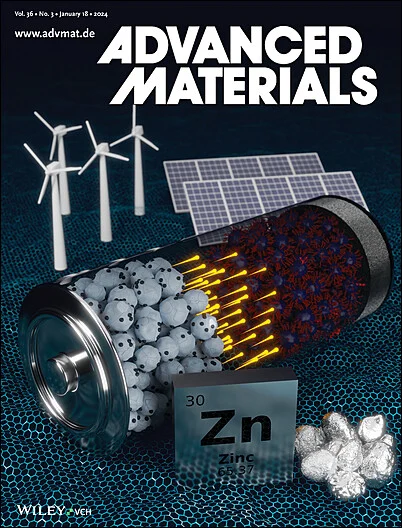Modular Design of Lipopeptide-Based Organ-Specific Targeting (POST) Lipid Nanoparticles for Highly Efficient RNA Delivery
IF 27.4
1区 材料科学
Q1 CHEMISTRY, MULTIDISCIPLINARY
引用次数: 0
Abstract
Lipid nanoparticles (LNPs) with highly efficient and specific extrahepatic targeting abilities are promising in gene delivery, and the lipopeptides (LPs) with excellent designability and functionality are expected to empower the construction of functional LNPs. This study aims to develop highly efficient ionizable components that accurately match different targeting lipid systems through the modular design of LPs. Based on this, a lipopeptide-based organ-specific targeting (POST) LNP screening strategy is constructed, in which lysine-histidine-based lipopeptides (KH-LPs) are designed as highly efficient ionizable components. The optimal KH-LP LNP screened in vitro shows excellent siRNA/mRNA transfecting ability in various hard-to-transfect cell lines. Compared to the classic LNPs, the POST LNPs screened in vivo achieve even higher (or at least comparable) efficiency and specificity in delivering mRNA and siRNA to the lung, liver, and spleen, respectively. The structure-activity relationship (SAR) proves that the modular regulation of LP structures can accurately provide the optimal ionizable components for different targeting lipid systems, demonstrating the potential of this strategy in developing efficient and selective targeting systems, which is expected to open up more possibilities for gene therapy.

求助全文
约1分钟内获得全文
求助全文
来源期刊

Advanced Materials
工程技术-材料科学:综合
CiteScore
43.00
自引率
4.10%
发文量
2182
审稿时长
2 months
期刊介绍:
Advanced Materials, one of the world's most prestigious journals and the foundation of the Advanced portfolio, is the home of choice for best-in-class materials science for more than 30 years. Following this fast-growing and interdisciplinary field, we are considering and publishing the most important discoveries on any and all materials from materials scientists, chemists, physicists, engineers as well as health and life scientists and bringing you the latest results and trends in modern materials-related research every week.
 求助内容:
求助内容: 应助结果提醒方式:
应助结果提醒方式:


